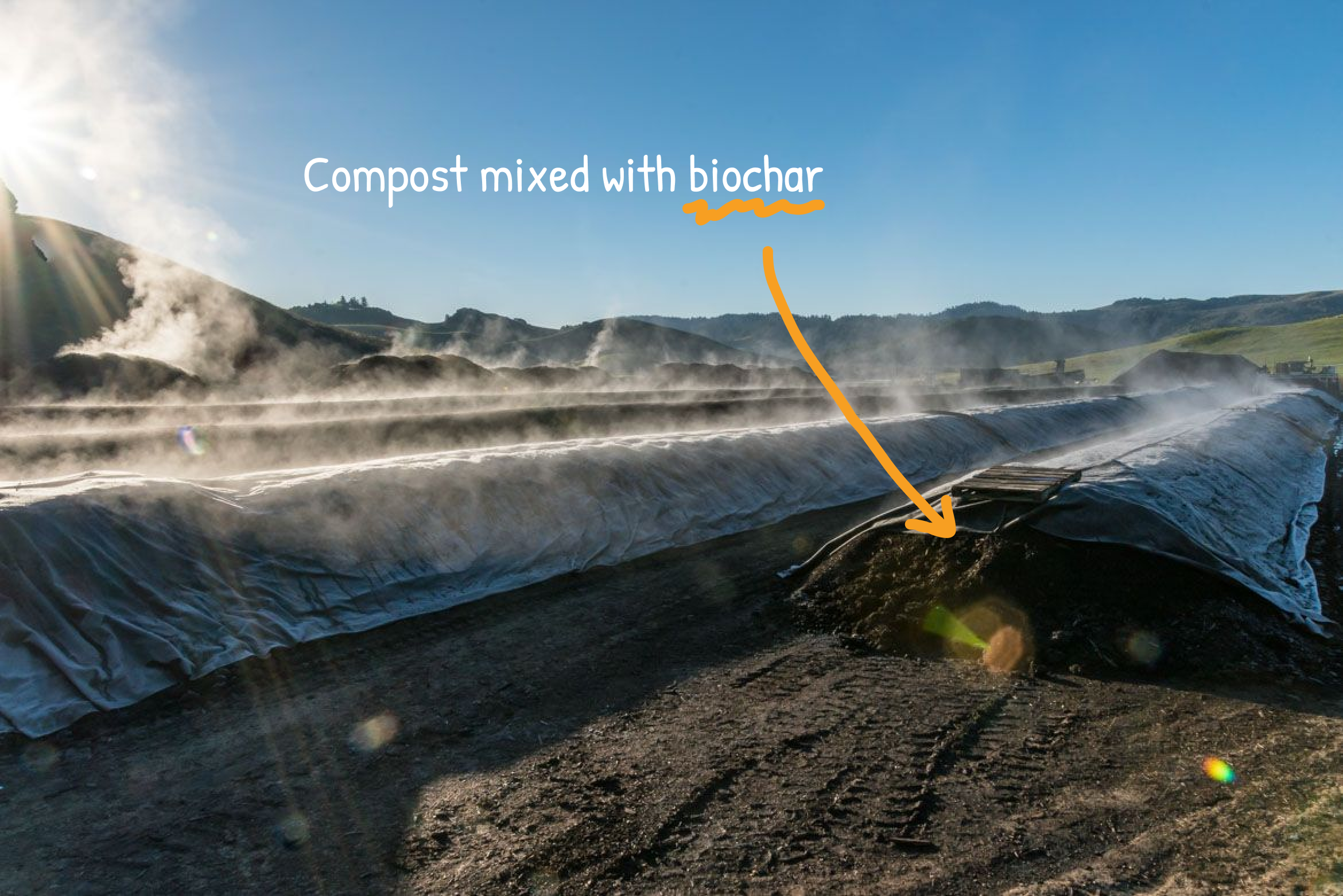Long-term benefits from a single action
A new discovery on how biochar application increases soil organic matter while storing carbon for thousands of years.

Just the gist
Short on time? Here’s what you need to know for this update:
🪨 The science of biochar and its co-benefits — A brand new discovery: biochar application increases soil organic matter and potentially reduces greenhouse gas emissions, while storing carbon for thousands of years.
For more project updates, follow Wren on Twitter and Instagram.
The story of biochar is a fascinating one, with a number of upsides for the environment and soil health. Our Biochar in California project has been hard at work applying their biochar to vineyards and dairies, with interesting results! Let’s dive in.
Improving soil organic matter with biochar
Soil is one of the largest carbon sinks on earth, a crucial part of the carbon cycle and the fight against climate change. And we can boost its efficiency with the help of biochar.
The organic component of soil, known as soil organic matter, is made up of plant and animal remains in varying states of decomposition. The amount of soil organic matter is strongly correlated with the state of soil fertility—it provides a reserve of nutrients which is slowly released to plants through mineralization.

Wren’s partner, Biochar in California, recently discovered that applying biochar up to 3 feet deep into the soil before use increases the soil organic matter by +0.5% in the volume of soil that is amended.
This application rate has been found to be ideal in terms of both agronomic and economic feasibility. It was first explored in the Oasis Vineyard Trial, and is being put to use today all over vineyards in Napa, Sonoma, and Monterey counties in California.
After a single application, the +0.5% increase in organic matter is stable in the soil for more than hundreds of years, offering benefits throughout the entire life of the plant grounds (in this case, vineyards) and beyond. It adds up!
Can biochar reduce greenhouse emissions in manure?
The Biochar in California team has been hard at work revising recent white papers that highlight the additional advantages of use biochar in agricultural soils. Among the well-researched co-benefits are enhanced water and nutrient conservation, remediation of heavy metals and organic contaminants, advancement of food security through greater yields, and drought/flood resilience.
“We are enthusiastic about promoting the idea that biochar is not simply a powerful CDR technology / natural climate solution, but when used in agricultural soils biochar can have incredible co-benefits.”
— Charlie McIntosh, Product Manager
In August, we learned about the relationship between compost and biochar and its dramatic potential to reduce both emissions and odor from the mixture.
Unfortunately, a strategy for determining these offset emissions has not yet been developed. Our Biochar in California project aims to be at the forefront of that discovery. There is increasing interest to start conducting trials, so we could see these exciting new experiments running sooner rather than later!
Wren subscribers will be among the first to hear about the results, process, and project. As always, thank you for your support.
— the Wren team 🧡

